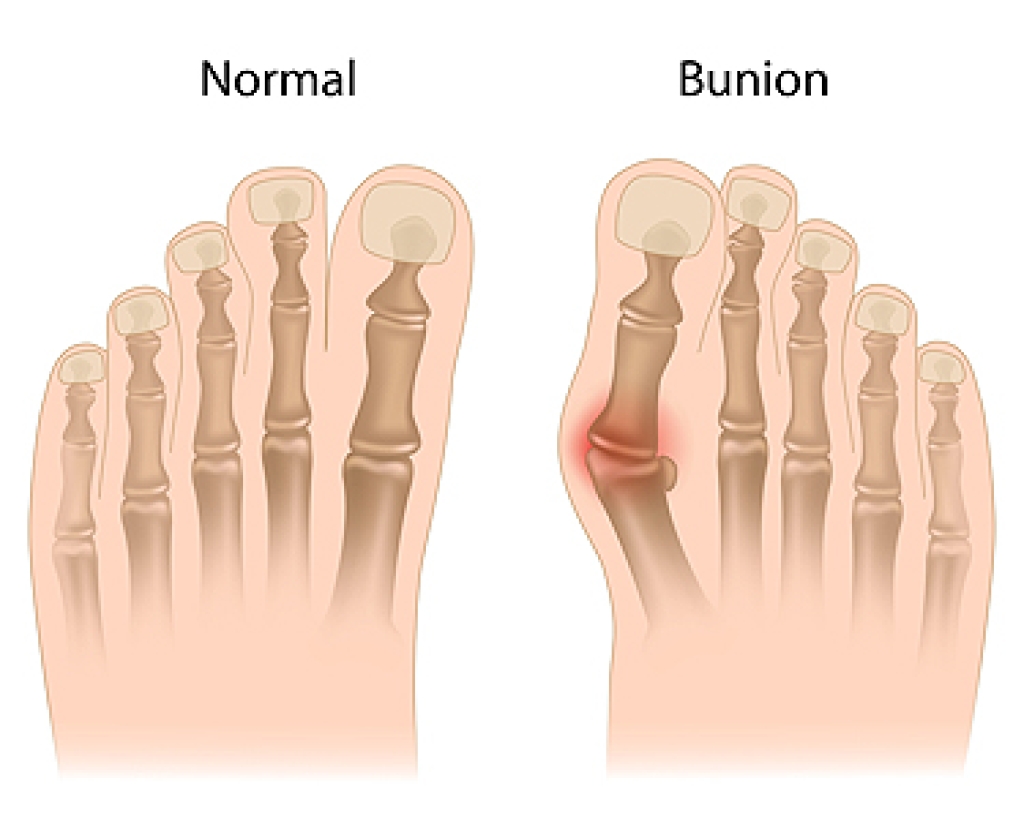
A bunion is a bony bump that forms at the joint where your big toe meets your foot. It often develops slowly as the toe shifts inward and the joint pushes outward. Wearing tight shoes, foot shape, or genetics can all play a role. Over time, the area may swell, feel sore, or become red and irritated. Walking can become uncomfortable, especially in narrow or stiff shoes. Pads, wider footwear, and custom orthotics may ease pressure and help reduce pain. In more severe cases, surgery may be considered to realign the toe and remove the bump. Bunions do not go away on their own, and waiting too long can make treatment more difficult. If you notice a bump forming or feel pain near your big toe, it is suggested you see a podiatrist for diagnosis and appropriate treatment.
If you are suffering from bunion pain, contact the foot specialists of Academy Foot and Ankle Specialists. Our doctors can provide the care you need to keep you pain-free and on your feet.
What Is a Bunion?
Bunions are painful bony bumps that usually develop on the inside of the foot at the joint of the big toe. As the deformity increases over time, it may become painful to walk and wear shoes. Women are more likely to exacerbate existing bunions since they often wear tight, narrow shoes that shift their toes together. Bunion pain can be relieved by wearing wider shoes with enough room for the toes.
Causes
- Genetics – some people inherit feet that are more prone to bunion development
- Inflammatory Conditions - rheumatoid arthritis and polio may cause bunion development
Symptoms
- Redness and inflammation
- Pain and tenderness
- Callus or corns on the bump
- Restricted motion in the big toe
In order to diagnose your bunion, your podiatrist may ask about your medical history, symptoms, and general health. Your doctor might also order an x-ray to take a closer look at your feet. Nonsurgical treatment options include orthotics, padding, icing, changes in footwear, and medication. If nonsurgical treatments don’t alleviate your bunion pain, surgery may be necessary.
If you have any questions, please feel free to contact our offices located in Southlake, Keller (Fort Worth), Hurst, North Richland Hills, Flower Mound, Argyle, and Denton, TX. . We offer the newest diagnostic and treatment technologies for all your foot care needs.
